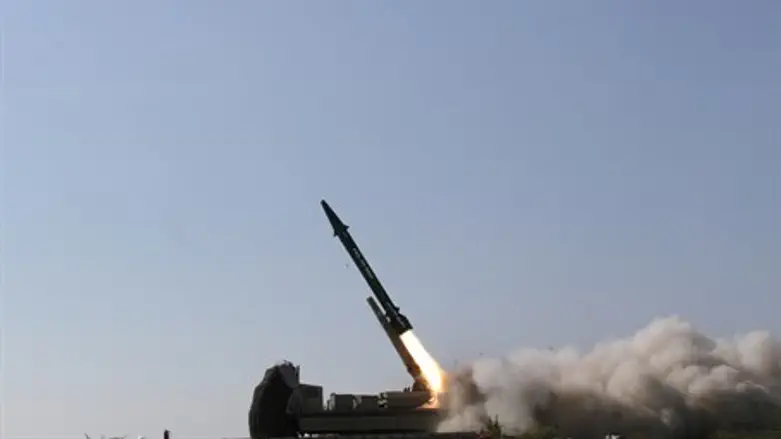
Despite apparently reducing illicit purchases that breach UN sanctions, Iran is pursuing development of ballistic missiles, according to a confidential UN report obtained by the Reuters news agency on Thursday.
A ban on developing missiles suited to carrying a nuclear warhead is included in a 2010 Security Council resolution imposed on Iran for defying council demands that it suspend uranium enrichment and other nuclear activities of potential use in bomb-making.
The new report by the UN Panel of Experts, according to Reuters, said that Iran's overall attempts to illicitly procure materials for its banned nuclear and missile programs appear to have slowed down as it pursues negotiations with world powers that it hopes will bring an end to sanctions.
At the same time, the report makes clear that, apart from holding off on test-firing one type of rocket, Iran shows no sign of putting the brakes on the expansion of its missile program.
"Iran is continuing development of its ballistic missile and space programs," the experts said, according to Reuters. "A new missile launch site 40 kilometers (25 miles) from the city of Shahrud was identified in August 2013. A larger launch complex is assessed to be close to completion at the Imam Khomeini Space Center at Semnan for ballistic missiles and satellite launch vehicles."
The report also cited what it described as the June 2013 opening of the Imam Sadeq Observation and Monitoring Center for monitoring space objects, including satellites.
The report comes as Iran and six world powers continue to hold talks in an attempt to reach a permanent nuclear deal, a follow-up to an interim deal reached between the sides in November.
The sides met again this week, and a senior U.S. official later cautioned against excessive optimism, yet said disputes could be overcome and a deal reached by a July 20 deadline
Daryl Kimball of the Arms Control Association, a Washington-based research and advocacy group, told Reuters that missiles should not become a deal-breaker.
"The best way to address Iran's potential to exploit nuclear-capable missiles is to ensure that Iran's nuclear program is sufficiently limited and transparent," he said.
"To seek Iran-specific limits on conventional weapons that Iran regards as vital to its self-defense would jeopardize the negotiations' key objective."
An Iranian official confirmed that the ballistic missile program would not be interrupted. "Iran purchases parts from various countries, including Russia and China and then assembles missiles in Iran," he said.
Another report by the UN panel which was exposed last week highlighted Iran's methods of evading the sanctions that were imposed on it.
That report showed that these methods range from concealing titanium tubes inside steel pipes to using its petrochemical industry as a cover to obtain items for a heavy-water nuclear reactor.
In 2012, it was revealed that Iranian ships were using other countries’ flags in an attempt to evade Western sanctions against the country.
Last year, the United States said that Iran was trying to obtain high-tech materials linked to their nuclear programs, in violation of UN sanctions.

